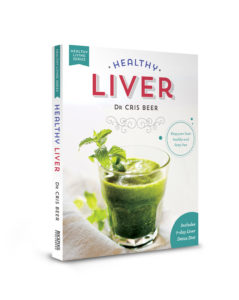Article in Body and Soul
Dieting really does more harm than good in the long-term. It can be hard to accept this fact when we are desperate to achieve weight loss. Often we feel that we need to diet to stay motivated, to kick-start our healthy eating plan, or to start seeing results. The reality is, however, that with only 5 per cent of individuals being able to maintain the lost weight from dieting it appears that diets simply do not work. In fact, most individuals regain the weight plus extra kilos following dieting due to a change in their appetite, metabolism and body fat levels.
The key to achieving a healthy weight for your frame is to never diet. We are biologically programmed to not diet as this is seen as a major threat by our body to our own survival and our body will combat our efforts by making us crave food.
There are many fad diets out there that report amazing results, but these are usually fraught with misleading claims. There is no one type of diet that suits everyone.
So if you aren’t supposed to diet how are you meant to eat to lose weight? Try following these simple strategies:
Follow the 80/20 rule
Focus on keeping around 80 percent of your diet as fresh and unprocessed as possible and allow yourself to have the occasional less healthy option (the other 20 percent of your diet). This is the basis of balanced eating. If you are overly strict with yourself and keep denying yourself certain foods, you’ll more than likely just crave it even more.
Be present when you’re eating
How many times do you mindlessly eat without really appreciating what’s on your plate? Aim to reduce ‘unconscious’ eating, which commonly occurs if we eat while we are doing something else such as watching TV, working on the computer, or while we are driving. This can greatly increase our food intake simply by being unaware of what we are putting in our mouth.
Reduce emotional eating
Emotional eating is eating when we are feeling an intense emotion such as fear, sadness, loneliness, excitement, or stress – this is preceisely what happens when you find yourself reaching for a chocolate bar to console yourself after a particularly stressful day. It is often the type of eating that happens in the late afternoon and evening and can quickly expand our waistlines. Recognising our deep emotions, acknowledging them, and practising other coping strategies rather than eating helps to break the habit of emotional eating.
Be realistic about your weight loss goals
Quick, dramatic weight loss is not realistic. Losing a lot of weight in a short amount of time is also not sustainable. A more realistic and sustainable goal is around half to one kilogram per week.
Listen to hunger cues
If you’ve ever been ravenous while shopping at the supermarket, you’ll know that feeling intensely hungry can often influence you to put much more food in your trolley than you’d initially planned. Avoid allowing yourself to get really hungry as this can result in overeating. When you notice that you are starting to feel hungry try having a light snack or large glass of water to curb hunger and avoid bingeing.
Practice portioning
It is easy to overeat just because our portions have slowly expanded. Try eating off smaller plates and pre-portion out your snacks into snap-lock bags rather than eating out of packets.
Reduce temptation
Having a fridge and pantry stocked with unhealthy treats can wreak havoc on your ability to stick to a healthy eating plan. The best way to avoid over indulging in less healthy options is to not have it in the house. Out of sight is out of mind after all.
Ultimately the key to weight loss isn’t about being overly strict or trying to take shortcuts, it’s about finding an eating plan that works for you and that is both sustainable and enjoyable.
#healthyhabits #healthyliver
Dr Cris
Holistic Medical Doctor, Author ‘Healthy Habits, 52 Ways to Better Health‘ and Healthy Liver



